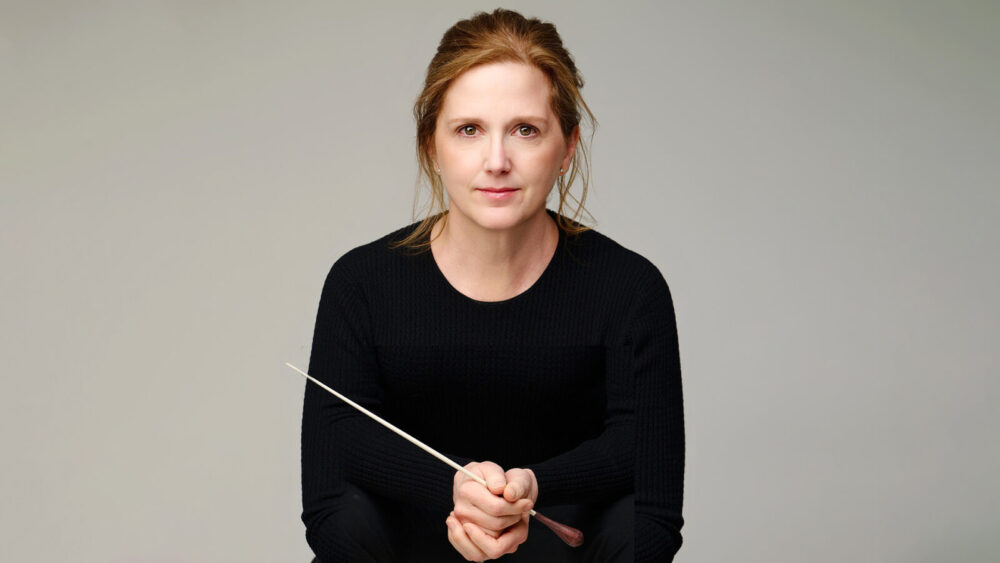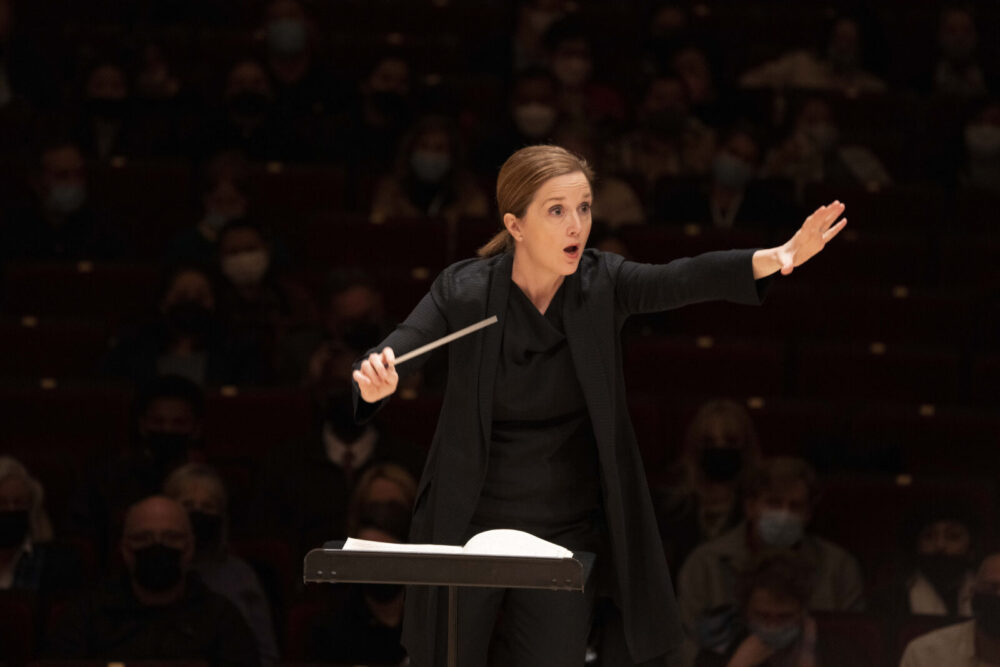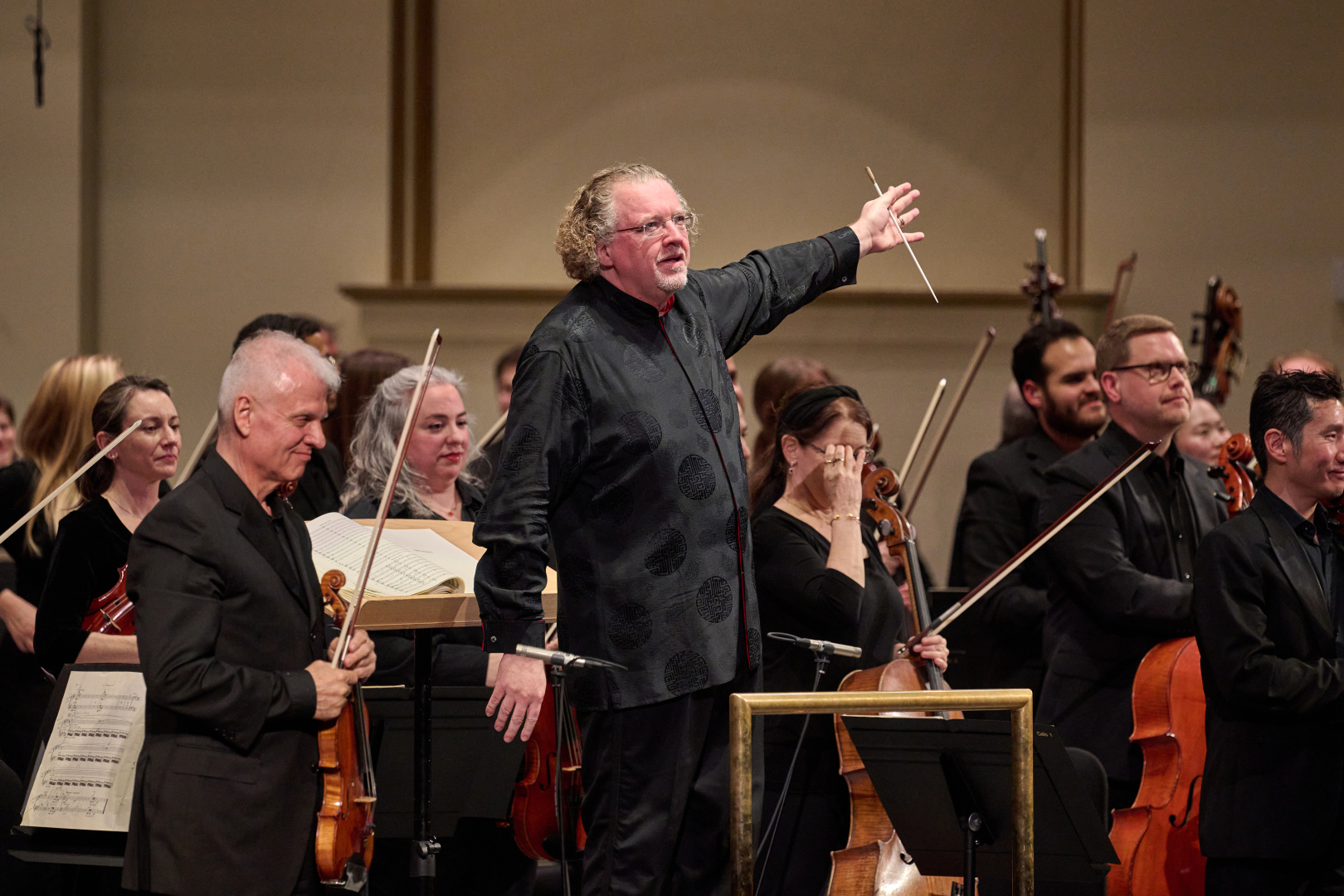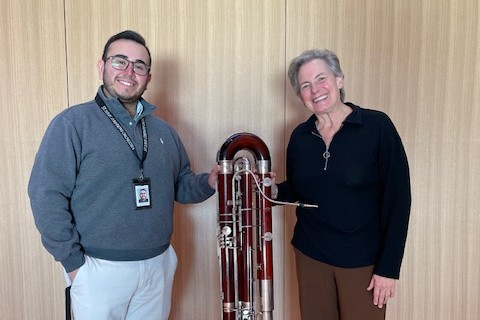Meet Erin Freeman: the new Director of the St. Louis Symphony Chorus
By Eric Dundon
When the 2024/2025 season begins, the acclaimed St. Louis Symphony Chorus will have a new leader: just the third director in its 50-year history. Erin Freeman has been named the Director of the Chorus and the AT&T Foundation Chair, an appointment made by Music Director Stéphane Denève following a national search.

A multi-dimensional leader, Freeman serves in multiple positions, including as Artistic Director of The City Choir of Washington, Artistic Director of Wintergreen Music, and Principal Conductor of the Richmond Ballet. She recently concluded successful tenures as Director of the award-winning Richmond Symphony Chorus and Director of Choral Activities at Virginia Commonwealth University. She has guest conducted orchestras including the Kennedy Center Opera House orchestra, Detroit Symphony, Buffalo Philharmonic, Virginia Symphony, Washington Ballet, and New York City Ballet, as well as at notable venues including Carnegie Hall, Lincoln Center, Boston Symphony Hall, La Madeleine in Paris, and the Kennedy Center.
In her position, Freeman will lead the preparation of the St. Louis Symphony Chorus for concerts with the SLSO, collaborating with Denève and a roster of international guest conductors on the artistic vision for choral and choral-orchestral performances. Freeman will be the third director of the Chorus since its founding in 1976, and succeeds Amy Kaiser, who held the same position with the SLSO from 1995 through her retirement at the conclusion of the SLSO’s 2021/2022 season. The SLSO spoke with Freeman about her appointment.
This interview has been edited for length and clarity.
St. Louis Symphony Orchestra: Take us to the start of your musical journey.
Erin Freeman: I was not raised in a musical family. When I was around six, my mother took me to the Atlanta Symphony to a concert that was then called Christmas with Robert Shaw. We sat in the very back and I was tiny, so I had to sit on the back of the chair to be able to see. I remember being impressed, overwhelmed, and excited by everything on stage. I was hooked at that point, and I knew I wanted to be up on that stage.

How did that early musical experience translate into your musical studies?
After that concert, I made my mom’s friends listen to me tell stories. One of my mom’s friends said, “you should put her in a children’s choir. Maybe that’ll shut her up” [laughs]. The closest children’s choir was a couple blocks away from my house and it turned out to be the children’s choir that sang with Mr. Shaw in those holiday concerts. So from a young age, I was singing in a children’s choir and eventually joined the Atlanta Symphony Chorus.
How did participating in choruses in your adolescence shape your career today?
What struck me was not necessarily the performances, but the rehearsals where people came from their daily life and focused for two and a half hours on something beautiful and incredible. I always felt like I was a better person at the end of those rehearsals. Now that I get to be a part of structuring those same kinds of experiences for others.
In addition to conducting choruses, you are an orchestral conductor, and have conducted ballet and opera. How does your breadth of experience shape how you approach working with choruses?
I believe there is much for each subdiscipline to learn from others. For example, when you’re working with dancers, you can see the phrase from beat to beat as they move. There’s this beautiful sense development—for a singer that would be the breath, and for a string player that would be visualizing how the bow is drawn across the string. There is a lot of learning between one another musically, but also in terms of subculture. How do dance companies speak to their dancers and how do we speak to our orchestra musicians and how do we speak to our choral musicians? For me, in terms of how those disciplines help the work I’ll be doing with the St. Louis Symphony Chorus, I think one prepares a symphonic chorus better when they understand the entire orchestral technique.
You’ll be the third director of the Chorus in its almost 50-year history. What did you know about the Chorus prior to preparing it for the first time?
I met Amy Kaiser several years ago and seen and heard the Symphony Chorus when I was in St. Louis. I remember being impressed by the Chorus and being excited to see another woman in a leadership role. Her reputation is clear in the entire industry.
You prepared the Chorus for a performance of Gabriel Fauré’s Requiem in February 2024. Aside from its artistic qualities, what did you learn about the Chorus during that process?
I’m a strong believer that it is possible to have a strong, positive, uplifting community and artistic excellence in the same organization. It is important to me that wherever I go, that value is held by those who are there. It is clear to me that the culture of the Chorus and orchestra in St. Louis is aligned with that belief of mine. I felt very welcomed. I felt like there was a great sense of focus and drive towards excellence, but I also felt like there were opportunities to relax and smile.
In your preparation of the Chorus for Fauré’s Requiem, what did you discover about Music Director Stéphane Denève’s relationship with choral music?
The first time I had a conversation with Stéphane, we spoke for a long time about a variety of vocal things. It was so fun. We started talking about the importance of approaching pronunciation of the words from the point of view of what the listener was going to hear. We discussed complete unanimity of text because that is one thing that a chorus has that the orchestra doesn’t. I was grateful to be able to do French music for Stéphane as my first concert for him because it’s obviously his native language, and so I feel like I got to know his musicianship quickly.
Let’s have a lightning round of questions. Where did you grow up?
Atlanta.
And you’re currently based in…
Washington, D.C.
A composer whose music always inspires you is…
J.S. Bach.
And a composer whose music should be performed more often is…
Louise Farrenc. I’ve been interested in presenting the works of historic female composers recently.
If you were to be an instrumentalist, which instrument do you think you would be best suited to?
I’ve always wanted to play the bassoon. I love the sound. I love the range.
You have a free weekend with no obligations. What do you do?
I’m going to the farmer’s market, and then I’m cooking a meal with all the stuff that I found at the farmer’s market, and then I’m sitting on the deck and listening to the birds.
Eric Dundon is the SLSO’s Public Relations Director.


